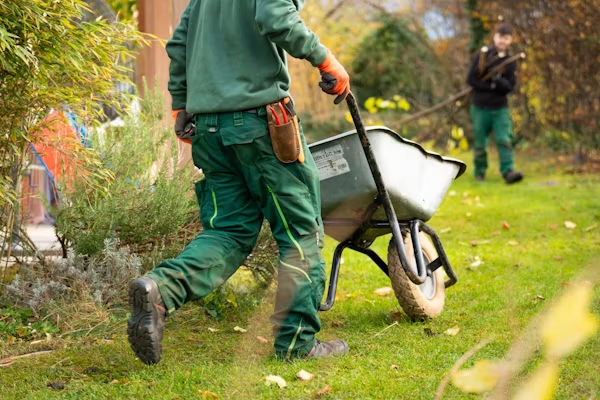Starting a career devoted to yards and green spaces brings together creativity, steady outdoor work, and a chance to develop long-term relationships with clients who value a well-cared-for property. Many people search for a path that gives them independence, room for growth, and a tangible sense of progress at the end of each day. Caring for outdoor spaces offers these rewards paired with the ongoing satisfaction of shaping areas people walk by, relax in, or admire from their windows. Entering this field does not require a perfect background or a long list of formal credentials. What matters most is persistence, curiosity, and a willingness to learn how natural environments respond to thoughtful care. Over time, skills strengthen, new techniques become familiar, and the work evolves from simple chores to a respected occupation supported by loyal clients. This guide walks through the steps for launching such a journey, exploring the technical, practical, and business elements that help newcomers build momentum.

Developing Skills for Professional Work
Anyone who wants to turn basic lawn care into a long-term career can begin by studying mowing methods, pruning rules, soil habits, and plant responses. Many start with basic jobs, then expand their knowledge through hands-on practice and steady improvement. Learning how to choose tools, recognize the needs of shrubs, and encourage growth during different seasons leads to better results. Training courses can help, though direct experience is often the strongest teacher. Over time, a newcomer moves from simple tasks toward a role that resembles a seasoned professional, guiding clients and shaping the direction of each project. This growth accelerates when workers learn how to grow your landscaping business, since this topic sits at the heart of becoming a professional landscaper and creates a bridge between technical skill and long-term success. Developing confidence with soil preparation, trimming patterns, and plant selection helps set a strong foundation for all future work.
Building a Reliable Toolkit for Daily Work
Every job in this field requires the correct equipment. The right mower, sturdy trimmer, sharp pruning shears, and a dependable blower can transform a long day into a manageable one. New workers often begin with budget-friendly tools, then upgrade as their client list expands. Comfort matters as much as durability, since hours of outdoor labor put stress on hands, shoulders, and backs. Protective gloves, sturdy boots, lightweight eye protection, and ear guards protect the worker as much as the tools protect the turf and plants.
A well-chosen set of tools also creates a sense of professionalism. Clients notice when equipment is maintained with care. Clean blades, quiet engines, and neatly stored gear signal that the worker approaches each project with seriousness. This impression helps attract repeat customers, which strengthens a growing business. Attention to maintenance extends the life of every tool, reduces downtime, and helps keep schedules running smoothly. Workers gain confidence when their gear functions exactly as expected, no matter the demands of the day.
Finding Clients and Creating Strong First Impressions

The first few clients often come from neighbors, friends, or people who notice tidy yards in the area. A simple conversation or a friendly introduction can open the door to early opportunities. New workers often rely on word of mouth, which can spread quickly when the work is reliable and the results make a clear visual difference. Clear communication with clients about timing, expectations, and pricing helps build trust.
A strong first impression depends on punctuality, neat clothing, and respectful conversation. Clients value workers who listen closely to their requests and describe the plan for the yard in understandable terms. It helps to walk the property together before beginning any task, pointing out problem spots or areas that need attention. This early step shows commitment to the client’s goals and sets the stage for a positive working relationship..
Managing Time, Pricing, and Scheduling with Care
Running a yard care business requires organization. Each project has its own demands, and workers must plan their routes, allocate enough time for every yard, and leave space for unexpected delays such as equipment trouble or weather changes. Sharp time management helps workers complete projects consistently, which builds trust and positions them as dependable professionals.
Pricing can be a challenge for newcomers. Many start by researching the average rates in their region, then adjust based on property size, travel distance, and the complexity of each task. Fair pricing encourages repeat clients and stable income. Written estimates help avoid confusion, while a simple contract gives both sides clarity.
Expanding Services and Building Long-Term Relationships
Many yard care workers begin with mowing, trimming, and cleaning up, then expand their services as their confidence grows. Clients appreciate someone who can handle planting, seasonal preparation, fertilizing routines, or light design. Offering a wider range of services helps keep clients satisfied, reduces turnover, and strengthens income throughout the year.
Seasonal services attract steady demand. Spring cleanup, fall leaf removal, mulch application, and winter preparation create opportunities for repeated visits. Each of these tasks builds a connection with clients, who often look for someone they trust to keep their property looking healthy through changing conditions. Workers who show consistent results often receive referrals, which remains one of the strongest sources of new business.
Creating a Vision for Growth and Long-Term Success
Once a worker gains confidence and a steady list of clients, they can begin shaping a long-term plan. Some choose to hire helpers, expanding their reach and taking on larger projects. Others prefer to remain independent but raise their rates as their skill and reputation increase. Either approach can succeed with thoughtful planning.
Setting goals helps guide decisions. These goals might include offering new services, purchasing better equipment, creating a small office, or saving for a vehicle dedicated to transporting tools. Tracking income and expenses helps measure progress and identify areas where profits can grow. Many workers find motivation in seeing their business evolve from a simple idea into a recognized service in the community.
By developing technical knowledge, presenting reliable work habits, communicating clearly with clients, and planning for future growth, newcomers can step confidently into this field. The rewards grow with each successful project, each returning client, and each new opportunity. With patience, dedication, and a willingness to refine one’s craft, anyone can build a fulfilling future centered on the care of outdoor spaces.



(0) comments
We welcome your comments
Log In
Post a comment as Guest
Keep it Clean. Please avoid obscene, vulgar, lewd, racist or sexually-oriented language.
PLEASE TURN OFF YOUR CAPS LOCK.
Don't Threaten. Threats of harming another person will not be tolerated.
Be Truthful. Don't knowingly lie about anyone or anything.
Be Nice. No racism, sexism or any sort of -ism that is degrading to another person.
Be Proactive. Use the 'Report' link on each comment to let us know of abusive posts.
Share with Us. We'd love to hear eyewitness accounts, the history behind an article.